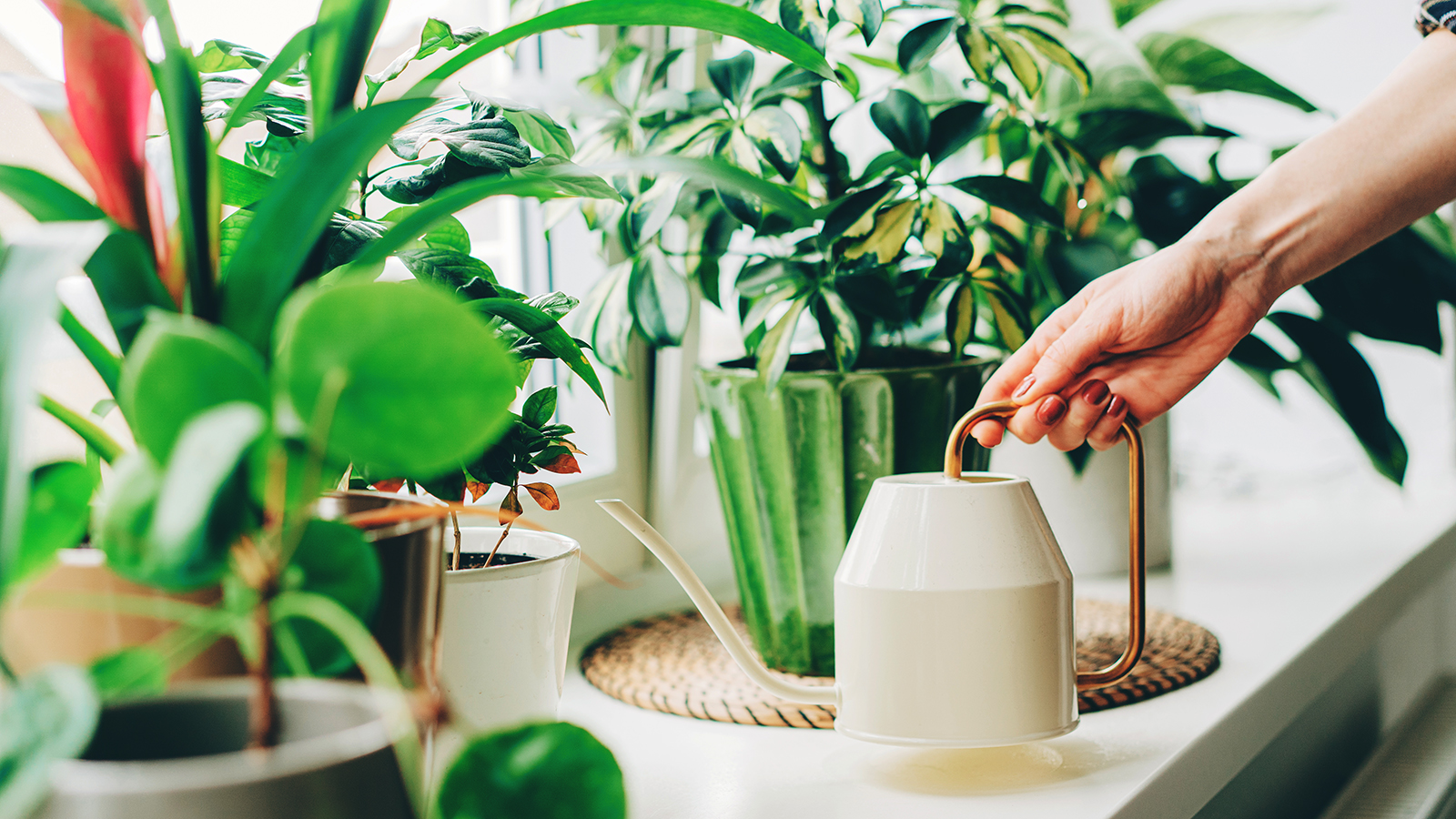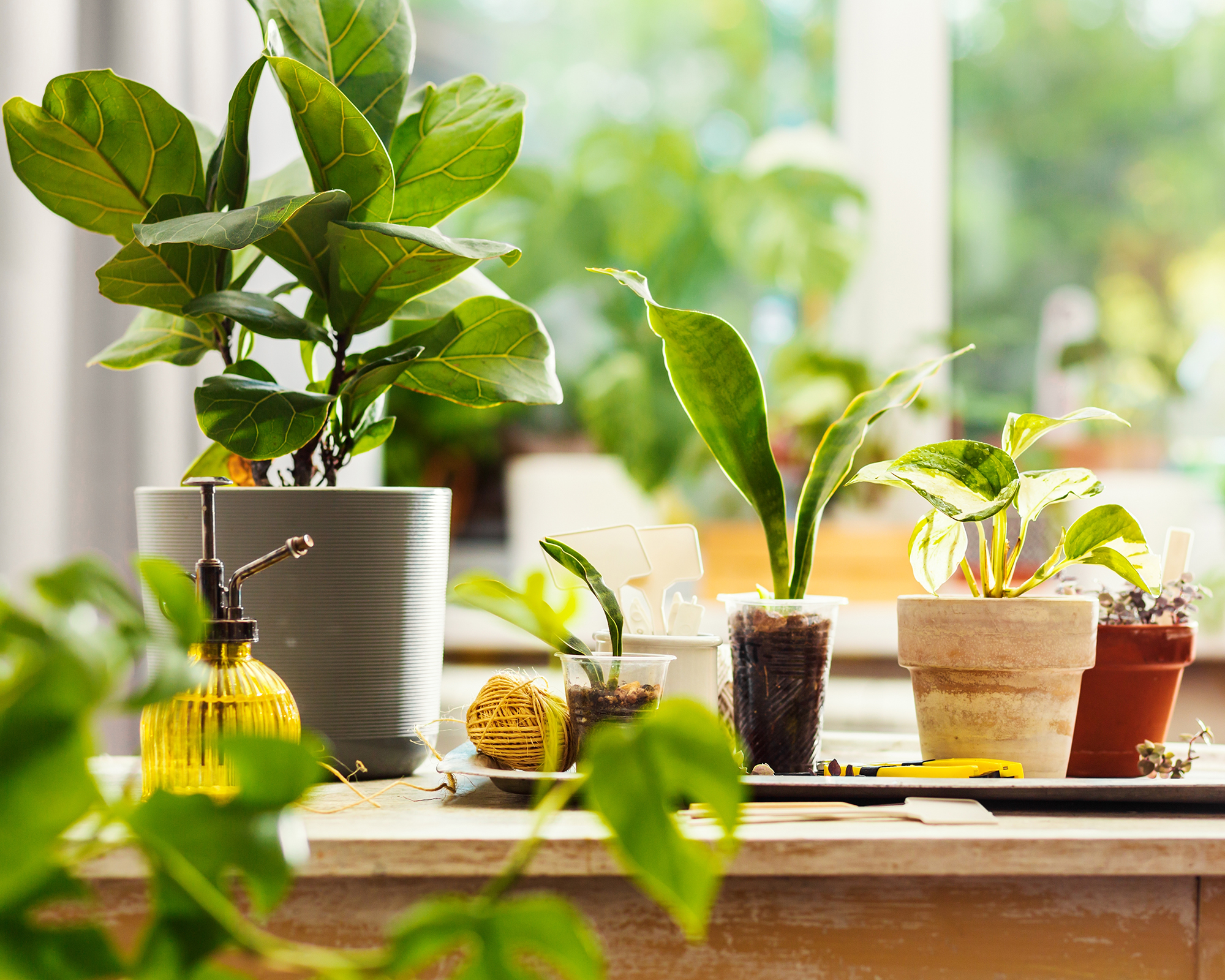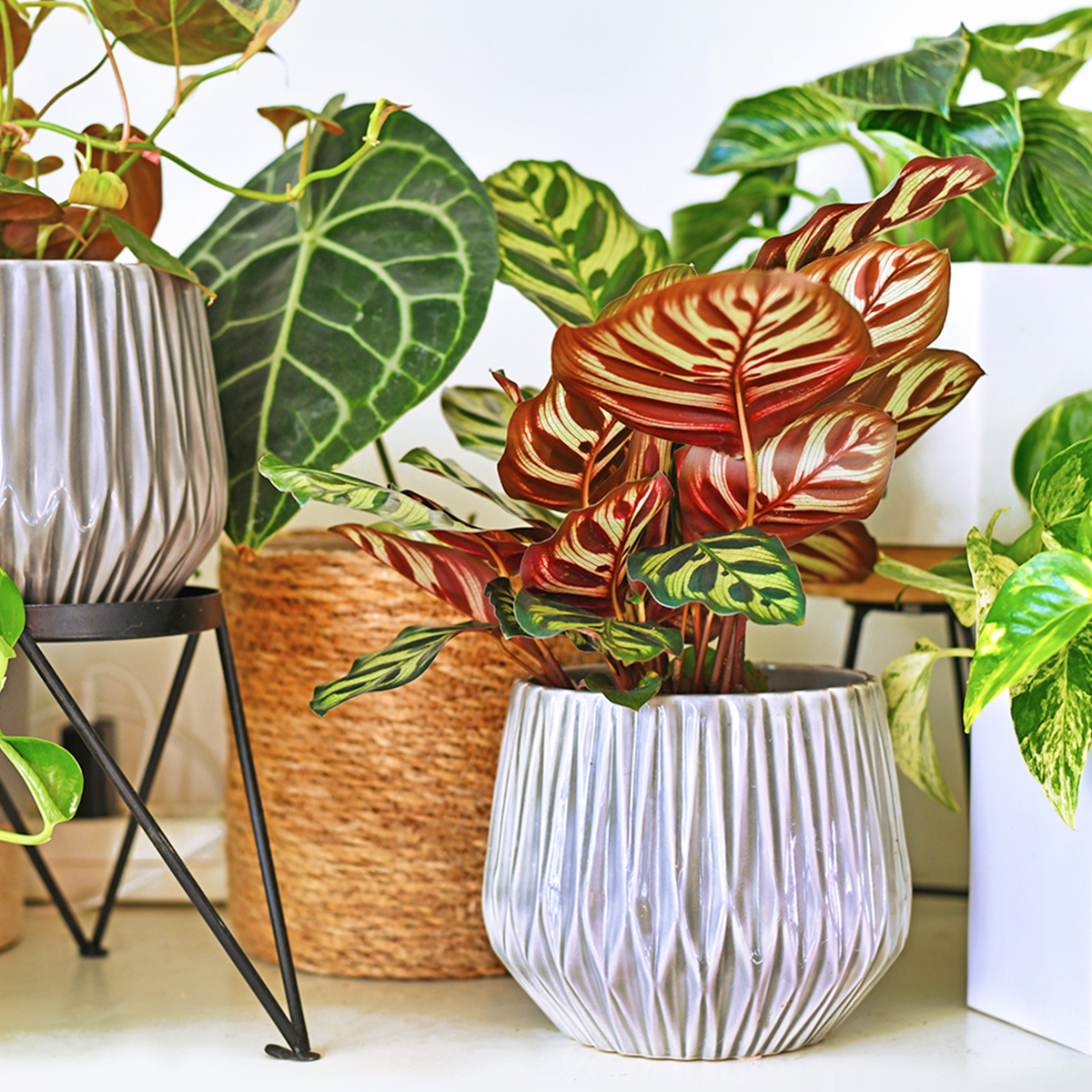Should You Fertilize Houseplants In Winter? Expert Says Light Levels Are Key
Wondering if your houseplants need feeding this winter? An expert horticulturist reveals why light levels make all the difference. Find out how to get it right.


All indoor gardeners know they should fertilize houseplants in spring and summer to encourage healthy new growth and flowering – but should you fertilize houseplants in the winter? As with most things in life, it depends on other factors.
When fall sets in and the mercury drops, many plants start to wind down for the season, and prepare to enter a state of dormancy. Growers are often advised to prepare houseplants for winter by cutting back on watering and reducing fertilizing. But there are some exceptions to this rule.
When Should You Fertilize Houseplants In Winter?
According to horticulturist Justin Hancock, a resident expert at leading houseplant grower Costa Farms, when it comes to feeding houseplants you need to take your cue from the conditions in your home, as well as the plant itself.
"If your plants are getting plenty of light – either naturally, from artificial lights, or a mix of both, you can continue to fertilize them through the winter if you wish to help promote more or faster growth."
This means if your houseplant is receiving enough light and warmth, and has not entered dormancy then you can continue fertilizing as normal – or consider reducing feeds to just once or twice a month.
It's also important to understand the fertilizing needs of your specific houseplants as they may thrive when fed at certain times of year.

Justin has worked at Costa Farms for over a decade, has a degree in horticultural science, and has many years of experience in garden publishing. He closely monitors plant trends, to shape the brand's product offering, and offers advice to growers through producing expert horticultural content.
When Should You Avoid Fertilizing?
If your home receives lower light levels over winter and plant growth has slowed down, then there is no need to fertilize housplants. "In average conditions, I don’t really recommend fertilizing houseplants in winter," explains Justin.
Sign up for the Gardening Know How newsletter today and receive a free copy of our e-book "How to Grow Delicious Tomatoes".
However, if you aren't sure your plants are dormant or feel you want to keep fertilizing them, then there's no need to worry – as long as you don't overdo it. "It’s not that the fertilizer will hurt the plants, but since they don’t have as much light to fuel growth, they don’t have as much opportunity to utilize the nutrients," Justin explains. "It’s simply less beneficial to fertilize in winter if they’re not putting on much active growth."
However, there are exceptions to this. If your houseplant usually flowers over winter or early spring, such as one of the different types of holiday cactus, then it's important to either stop fertilizing in the fall until spring, or to switch to a low-nitrogen formula. Nitrogen fuels foliage growth, and if flowering houseplants are fed with high-nitrogen fertilizers in the buildup to blooming, then you will get lots of green growth but few flowers.

When to Start Feeding Again
You should start fertilizing houseplants again as soon as spring arrives and the days are longer and brighter. At this stage, dormant plants will begin to come back to life and start putting on new growth.
Rather than feeding houseplants at every watering, Justin recommends using a time-release fertilizer in spring. "I’m a big fan of time-release fertilizers because they're easy – you just need to apply them once every few weeks and they supply your plants with a slow and steady amount of nutrients," he explains. "It’s harder to accidentally over-fertilize plants with time-release products than water-soluble fertilizers."
More Houseplant Inspiration
- Discover the 5 winter houseplant care mistakes you’re probably making, according to a horticulturist.
- Choose perfect houseplant combinations for every room in your home with our guide to getting it right.
- Rare houseplant expert shares 5 extraordinary, easy-care varieties you need to add to your collection this year.
- Shop indoor gardening essentials in the Gardening Know How Shop – from unique houseplants to growing kits and planters.
This article features products available from third party vendors on the Gardening Know How Shop.

Melanie is an experienced gardener and has worked in homes and gardens media for over 20 years. She previously served as Editor on Period Living magazine, and worked for Homes & Gardens, Gardening Etc, Real Homes, and Homebuilding & Renovating. Melanie has spent the last few years transforming her own garden, which is constantly evolving as a work in progress. She is also a passionate organic home grower, having experimented with almost every type of vegetable at some point. In her home, Melanie tends to an extensive houseplant collection and is particularly fond of orchids.
